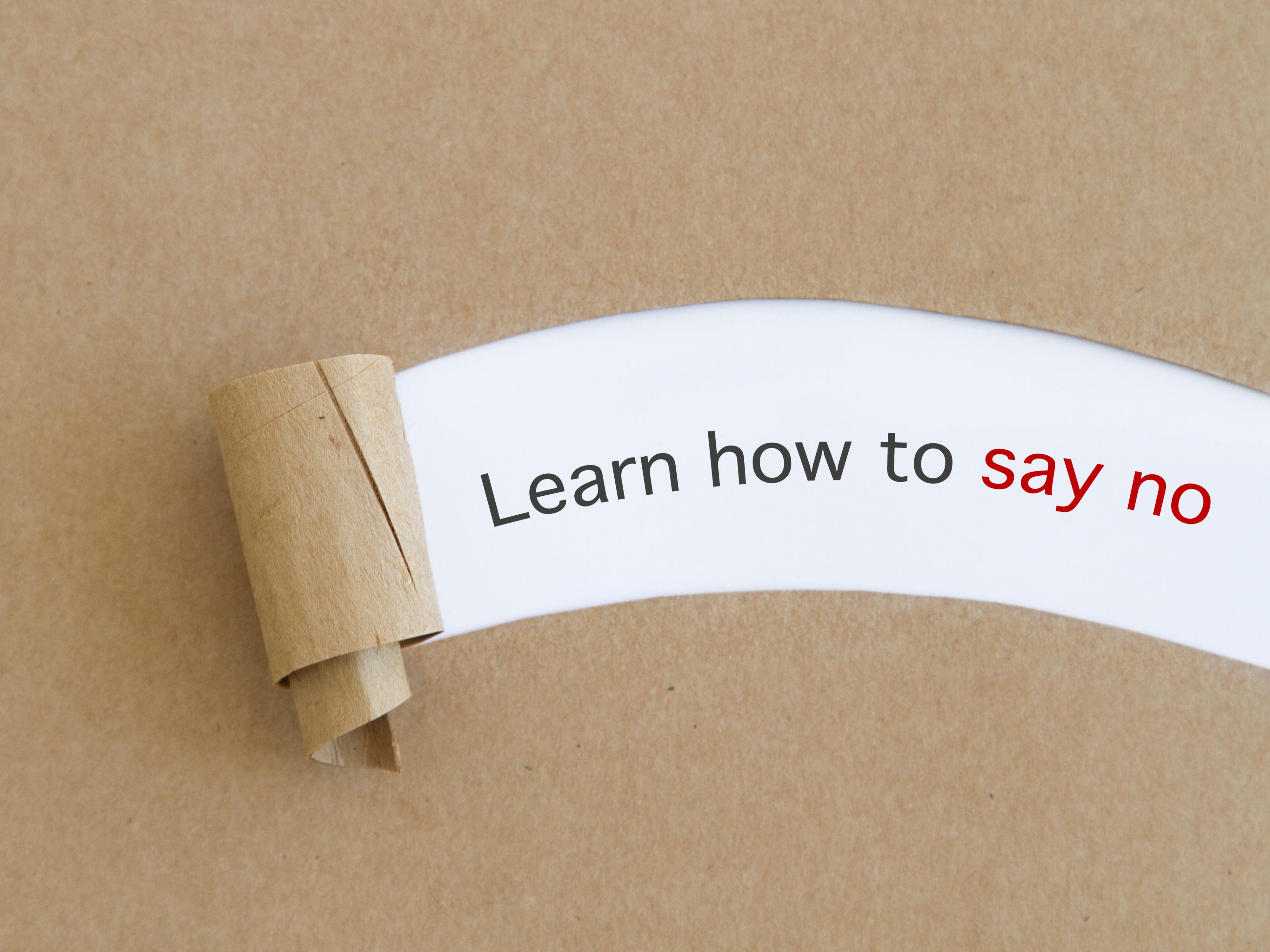
Picture this: It's a Friday evening, and you've just settled on your couch with a plate of hot pakoras and chai. Your favourite show is queued up, and then—ping—your phone lights up. It’s that colleague who always needs “a small favour.”
You want to say no, but before you know it, you’ve typed, “Sure, no problem!” Sound familiar? Saying yes feels easier than navigating the awkward guilt of saying no, doesn’t it?
You’re not alone. Many of us struggle to set boundaries, especially in cultures like ours that emphasise being helpful and accommodating. But here’s the thing—protecting your mental peace is more important than pleasing everyone. Let’s explore how to say no, guilt-free and take back control.
Why Saying No is Important?

Did you know that 58% of Indians report feeling burnout and workplace exhaustion, compared to the global average of 48%? That’s nearly six in ten of us, constantly running on fumes. But think of it like this—every “yes” you give to someone else is a “no” to yourself. It’s time to change that.
Here’s why learning to say no can be your ultimate self-care tool:
1. Saying Yes to Everything Is Like Opening Too Many Tabs on Your Browser
You wouldn’t open a hundred tabs on your laptop and expect it to run smoothly, so why treat yourself that way? When you say yes to every request, you’re overloading your mental capacity. You start forgetting deadlines, feeling irritable, and resenting even the things you once loved doing. Saying no helps you keep only the “essential tabs” open to function without crashing. Discover more boundary-setting strategies.
2. You Can't Pour From an Empty Glass
Imagine agreeing to help a friend with a last-minute project when you’re already exhausted from a full workday. You’re not just being unkind to yourself but also giving them less-than-your-best effort. Saying no doesn’t mean you’re selfish; you’re recharging so you can show up fully for the commitments that matter.
3. Saying No Saves You From FOMO-Induced Regret
You’ve likely said yes to a party only to regret it five minutes after arriving. That’s FOMO messing with your priorities. Reflect on how often that “yes” leaves you feeling drained instead of fulfilled. Saying no gives you the power to choose experiences that genuinely enrich you, not those you endure for appearances.
4. Your Time Deserves More Respect—Especially From You
Picture this: It’s Sunday, your one day to relax, and your neighbour calls asking for help with something trivial. You feel obligated to say yes, even though you were finally going to catch up on rest. Your time is precious; saying no is how you teach people to value it—starting with yourself.
5. No Is a Full Sentence, and It Sets You Free
Sometimes, the guilt of saying no comes from feeling like you need an excuse. But you don’t. “No, I can’t” is enough. Overexplaining only invites negotiation, and before you know it, you’re back to a yes. Remember, no is not rejection—it’s a boundary, and boundaries are what keep you sane and balanced.
"No" Without the Drama: How to Set Boundaries Without the Guilt

You want to say no, but the thought of seeming rude, lazy, or unhelpful leaves you stuck saying yes. The guilt is almost immediate. Here are some ways to say no gracefully, confidently, and without a side of guilt:
1. "I Would, But My Plate's Full—Want Me to Help Later?"
Sometimes, just offering an alternative is enough to soften the blow. For example, when a coworker asks for help on a project but you’re swamped, say, “I can’t right now, but I’d be happy to assist after [insert your timeline].” You’re not rejecting them outright; you’re setting a boundary while still being supportive.
2. "Thanks, But I’ll Have to Pass—My Time Is Stretched Thin"
This is perfect for situations where you’re invited to an event or asked for a favour that just doesn’t fit into your schedule. Acknowledge the request, express gratitude, and then gently decline. It’s polite but firm, and most people will appreciate your honesty.
3. "Let Me Check and Get Back to You"
Sometimes, you need time to think about whether you can realistically commit to something. Instead of agreeing on the spot, say, “Let me see if I can make it work, and I’ll let you know.” This buys you time to evaluate without feeling pressured, and you’re not saying yes out of guilt.
4. "That’s Not Something I Can Take On Right Now"
This works when someone keeps adding things to your to-do list. Whether it’s a demanding boss or an overreaching friend, this simple phrase makes it clear that you’ve reached your limit—without sounding defensive or apologetic.
5. "No, But Here’s Someone Who Might Help"
If you genuinely feel bad about saying no, redirecting the request to someone else can ease the guilt. For example, if a friend asks for career advice you don’t feel equipped to give, you can say, “I can’t help with that, but [insert name/resource] might be a good place to start.”
6. "I’m Focusing on X Right Now, So I’ll Have to Pass"
This one’s great when you’re working on personal goals or priorities. For example, if you’re saving money and someone asks you to chip in for a group gift or dinner, you can say, “I’m focusing on my budget right now, so I’ll have to sit this one out.” It’s transparent, and honest and helps reinforce your priorities.
7. Practice Saying No to Small Things First
If saying no feels daunting, start small. Say no to extra sugar in your chai, an invitation you’re lukewarm about, or an unnecessary work meeting. Building confidence in more minor decisions helps you gear up for the big ones, like declining overtime or setting personal boundaries.
Disclaimer: This information provided is intended for general informational purposes only. It is not a substitute for professional advice or guidance. For personalised recommendations or specific concerns, please consult a certified professional.



